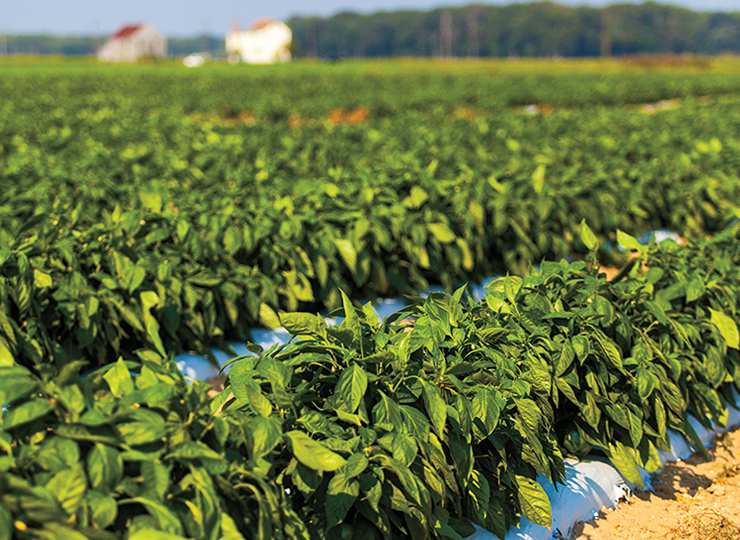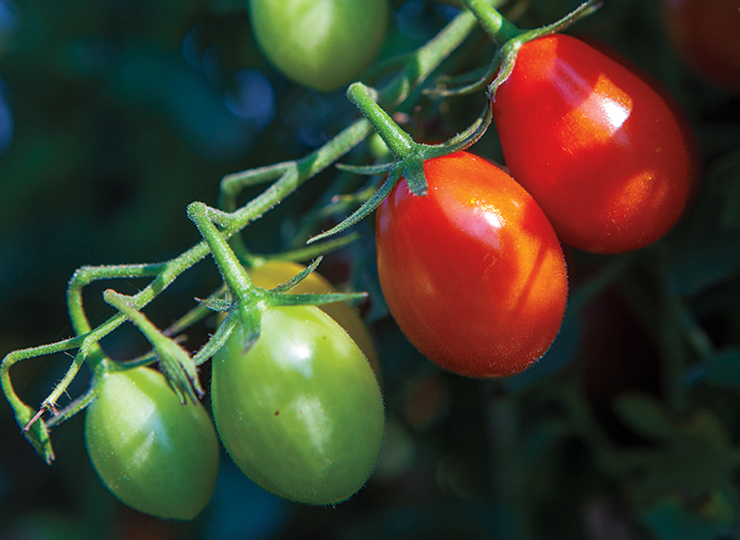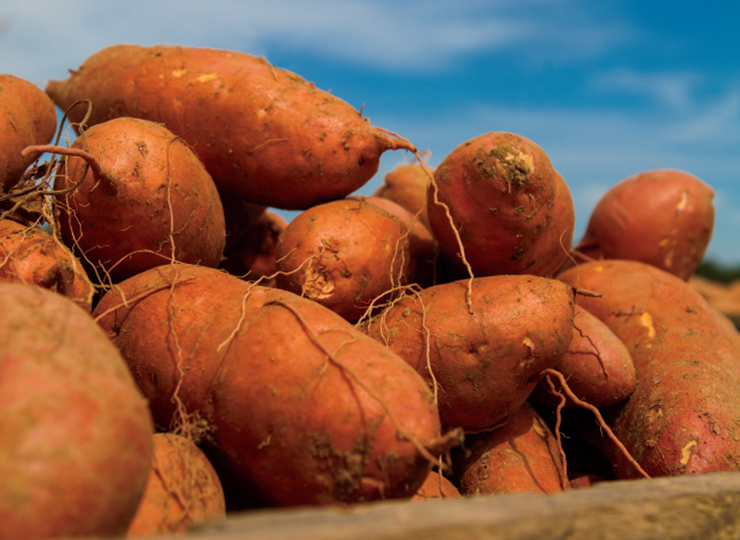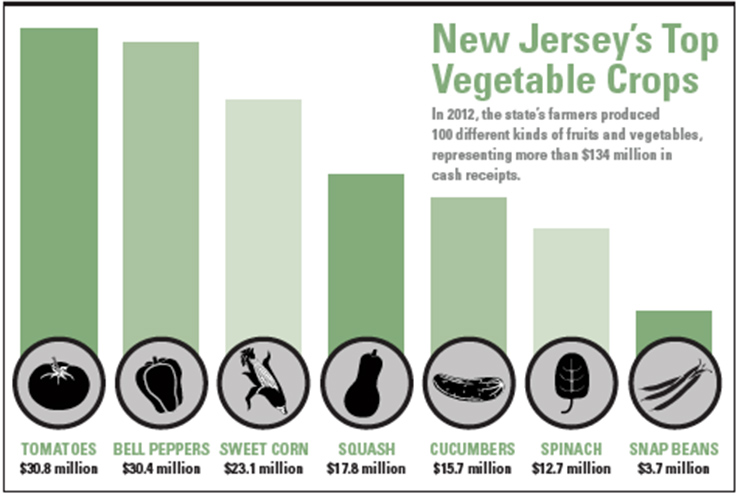Home > New Jersey > New Jersey Crops & Livestock > A Good Mix of Food Crops
A Good Mix of Food Crops

Good climate, good soil and farming families with centuries of experience combine in New Jersey to create a strong and diverse crop production industry in a state with limited land.
“Our farmers grow everything from arugula to zucchini,” says Dr. Wesley Kline, a county agricultural agent with Rutgers Cooperative Extension. New Jersey is a major producer of asparagus, bell peppers, eggplant, endive, lettuce and spinach.
“Producers in the southern part of New Jersey have a long growing season,” Kline says. “They can start planting in March and be out of the field in late November to early December.”
Because of that season, the southern part of the state is home to the state’s top crop producers, including two farming operations with rich histories. Eastern Fresh Growers & Sheppard Farms Inc. traces its beginnings to 1683, when four Sheppard brothers moved to southern New Jersey to begin a vegetable farm. Hunters Farm and Market began in 1760 along the Delaware River. Both farms are operated by the descendants of the founders.
“We’ve got good land and good weather,” says Tom Sheppard, president of Eastern Fresh Growers. We get the moderate effect of the bay so it’s not as cold in the winter or as hot in the summer.”

The climate makes growing leafy greens and lettuces a successful endeavor for the farm, which also produces asparagus, peppers, squash and dozens of other vegetable varieties on more than 1,400 acres in Cedarville. Sheppard says the location puts the company in close proximity to its customers.
Eastern Fresh Growers is the marketing arm of the business for its own Sheppard Farms and several other farms in the region, including an organic farm founded by one of Tom’s brothers. Family members are continuing to join the business.
“My nephews Brandon and Fran are with us now,” Sheppard says. “They are handling food safety, and that’s important to our customers and gives us a leg up on some of the competition. They are also working in marketing.”
Family involvement at Hunter’s Farm Market in Cinnaminson is also continuing. Farm market owner Amy Hunter-Zorn’s nephews help out on the farm between school and sports responsibilities, working alongside their 93-year-old great-grandfather, their grandfather and their own father.

Hunter Farms grows sweet potatoes, yams and two types of sweet corn, white and bi-color. The honey white yams grown on the farm come from seed stock that is more than a century old.
“Our yams are a unique product that we are now selling to third- and fourth-generation customers,” Hunter says. “The yams are so popular, we have a waiting list to buy them.”
Sweet potatoes harvested by Hunter Farms go to the Philadelphia market to wholesalers and farm markets and then into supermarkets and local restaurants throughout the northeast. Almost all the sweet corn crop is sold through local farm markets. Much of the produce is also sold onsite through Hunter Farms’ own market, which opened in 1993. The market is open from early May through Thanksgiving.
Hunter’s ancestors chose the land because it is near the Delaware River. That location remains important, since the farm still runs its irrigation system out of the river so that even during times of extreme drought the Hunters have access to water. Kline says limited farmland in New Jersey has created a farming community with a deep understanding of sustainable practices. Hunter Zorn can speak to those practices on her family farm.

“Because we’ve been stewards of this land for 250 years we understand how important it is to take care of it,” Hunter-Zorn says. “Not only do we rotate crops every year, but as soon as we’re done picking a field of corn we cut it down, plow it under and plant soybeans. This naturally replenishes the soil. Toward the end of November into early December when everything has been harvested, we plow under the soybeans and the whole farm is planted in winter rye. In the spring, the rye is plowed under to restore nutrients to the soil in preparation for planting corn, potatoes and yams.”



